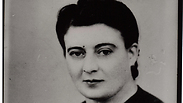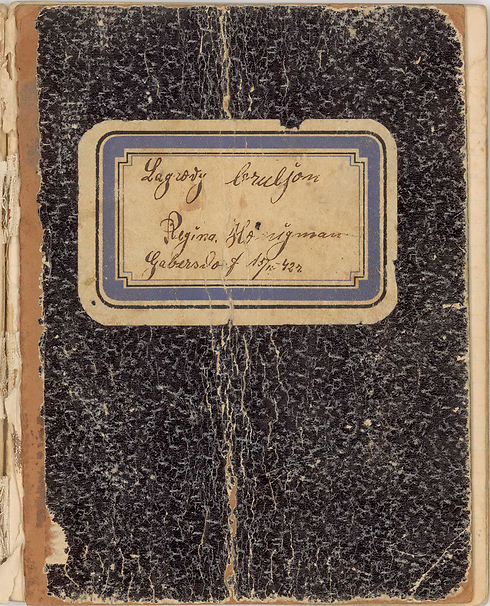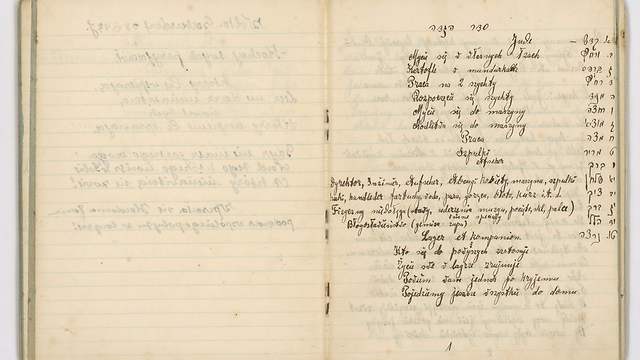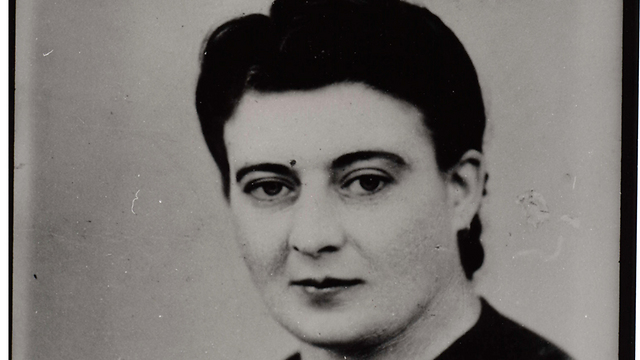
The research department at Yad Vashem has located a Passover Haggadah written between the pages in the diary of Regina Honigman, a Jewish Holocaust survivor who was imprisoned in Gabersdorf labor camp in Czechoslovakian side of the Sudetes mountains. The Jerusalem-based institution has now begun to search for the women named in the document.
"We were once slaves in Egypt," wrote Honigman, "and now again in Gabersdorf. In history we were subject to your grace/mercy to prevent us from being swallowed up (in the parting of the Red Sea) . . . The day of salvation will come to Gabersdorf."
Symbolizing liberty and hope, Passover held special significance in the camp where young women were sent for forced labor. The singular Passover Haggadah found in Honigman's diary included quotes and poems written by her fellow prisoners.
Honigman was born in 1918 in Wyrzysk, Poland. She was sent to the camp during the German occupation and was put to work in a factory that made linen thread.
"At long last, the long-awaited moment approaches," she wrote in one diary entry. "I am going to sleep and my eyes are closing from exhaustion… But we, dreaming of liberty, cannot fall asleep… a cry emerges from my imprisoned heart… We are not discouraged, because we have a rebellion in our hearts. We will achieve a better tomorrow in the land of Israel. Amen!!!"
Besides her diary, Honigman also wrote letters. In one addressed to her mother in honor of Mother's Day, she wrote: "I think of you during every step, morning and night always… Mother: Always be happy – may the sun shine for you so that I may scatter flowers on your path in life…"
Regina Honigman and her brother survived the war, but her sisters and parents were murdered in Auschwitz. She continued to write in her diary when she arrived in the displaced persons camp at Bergen-Belsen after the war. She met her future husband in the DP camp in 1947. They moved to Australia and had two daughters. Regina Honigman died in 1992, after which her daughters donated the diary to Yad Vashem.
The diary names a large number of women who were imprisoned in Gabersdorf. Yad Vashem has asked for help locating the women or their relatives.
"The discovery of the diary will help expand the research into this unique author and will allow us to learn additional details about these courageous women and about the news lives they built after the war, when they were liberated from slavery," says Yad Vashem Chairman Avner Shalev.
Yad Vashem is asking for anyone who has any information about any of the women, or Gabersdorf in general, to contact the museum by phone at +972-2-6443598 or e-mail at [email protected] or [email protected].
The names (and locations in Poland) mentioned in the diary:
Hela Cymbler
Behirah Hocherman (Sosnowiec)
Regina Perlgricht
Mania Pariser
R. Kleinfeldowna (Warthenau)
Helga Blumenfeld
Mania Goldszmidt
Cyla Friedman
Hanny Goldfaden
Guta S 'Mici Spilman (Bendsburg)
Pola Szapiro
Fela Niciarz (Zawiercie)
Estera Holand
Gienia Wajnglik
Irka Wolnerm
Bronislawa Zagorska (Jaworzno)
Rozia Sztirlberg
Hania Tombak(owna)
Marie Blusztajn
Rozia Reich (Jaworzno)
Ruth Frichler (Skoczow)
Rozia Berliner (Sosnowitz)
Adela Birenstok
Lola Schon
Sala Grossman
Jacka Butnik (Jaworzno)
Rozia Reich (Jaworzno)
Lotti Finger (Jaworzno)
Bela Kuchman
Gusta Feiler (Oswiecim)
Maryla Lollman
Zosia Joachimowicz (Jaworzna)
Jochke Wasserberger (Auschwitz)
Genia Lewkowicz (Bendsburg)
Regina Manesbaum (Sosnowicz)
Edzia Wislicka
Pola Golenzer (Sosnowiec)
Hela Golenzer (Sosnowiec)
Henia Haliciewicz
Ruzia Merik (Sosnowitz)
Karola Garnicowna
Jadzia Sztainfeld
Hanka Apelbaum (Sosnowitz)
Rusia Ajnveder (Bendsburg)


















